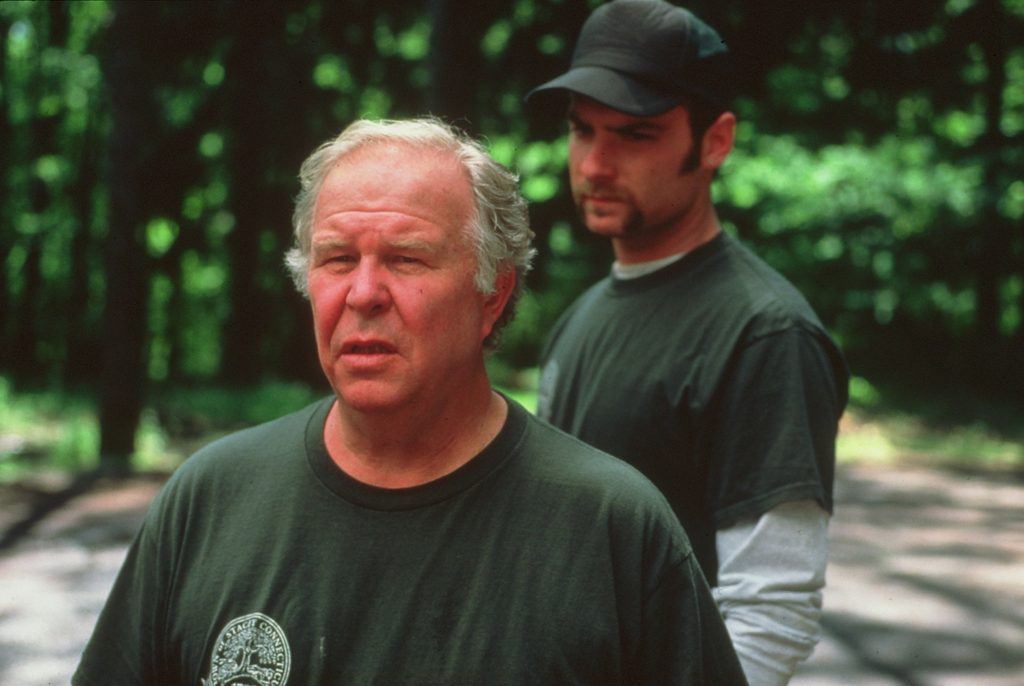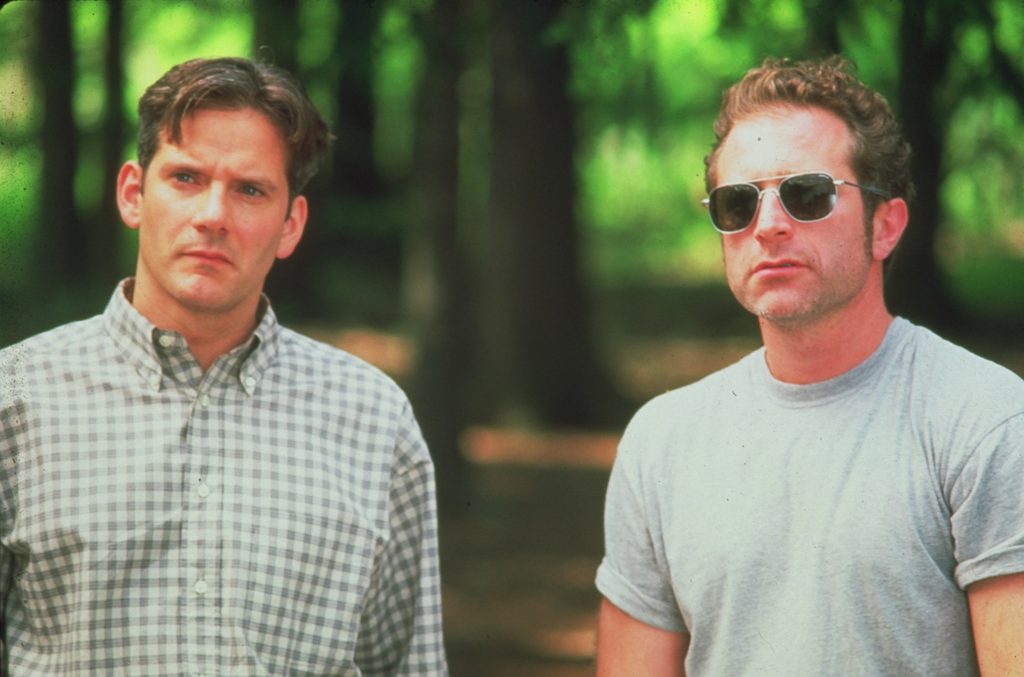Spring Forward is like cool water and fresh wind, a film so pure-hearted that cynicism falls before it.
-- Roger Ebert, Chicago Sun-Times

Spring Forward was shot in sequence over the course of a year in four different shoots, each consisting of about a week of rehearsal and two weeks of filming. It was my first feature and took about three weeks to write, based largely on comedic improvs Jim McKay and I had done over about ten years poking fun at the generational differences of two characters named Murph and Paul.
In the year before I wrote the script my mom underwent a very difficult lung transplant at Mass General Hospital in Boston, and my Dad and I shared a hotel room across the street. We could only visit her for 10 minutes each hour, tapping on the glass of the ICU. This left a lot of time for us to walk around the snowy neighborhood talking about life. The comedic dialogues of Murph and Paul took on a deeper dimension.
A few months later Jim said ‘it’s time to make the film of the two guys talking,’ and he and my other soul brother Michael Stipe agreed to produce it with their film company C-Hundred Film Corp. This fraternal environment and the history with the material enabled me to write such a detailed script so quickly. Soon Gill Holland joined to help push it forward, as did Caroline Kaplan at IFC Films—-the spiritual mother of the project. And from the first second of the first rehearsal the visionary producer Paul Mezey literally never left my side.

Rehearsals were extremely exacting, with the dimensions of each location taped out on the floor of a warehouse space. Ned and Liev rehearsed each lengthy scene (there are only seven) like a one-act play, occasionally joined by Campbell Scott, Ian Hart, Peri Gilpin, Bill Raymond, Hallee Hirsch and Catherine Kellner. There was no improv whatsoever in the actual shoot. It was a difficult year and these brilliant actors gave me an invaluable year-long master class in acting. The film premiered at the Toronto Film Festival, where I won the Discovery Award. As I discussed my opening remarks with the Toronto Festival director in the giant empty theatre, my Dad walked in half an hour before the house opened, wearing a three piece business suit. He took the middle seat in the middle row—-the dead center of the theatre, waving his hand at me that I should just continue my conversation. The image of him in that seat in the empty theatre is the most indelible memory I have of the entire experience of the film.